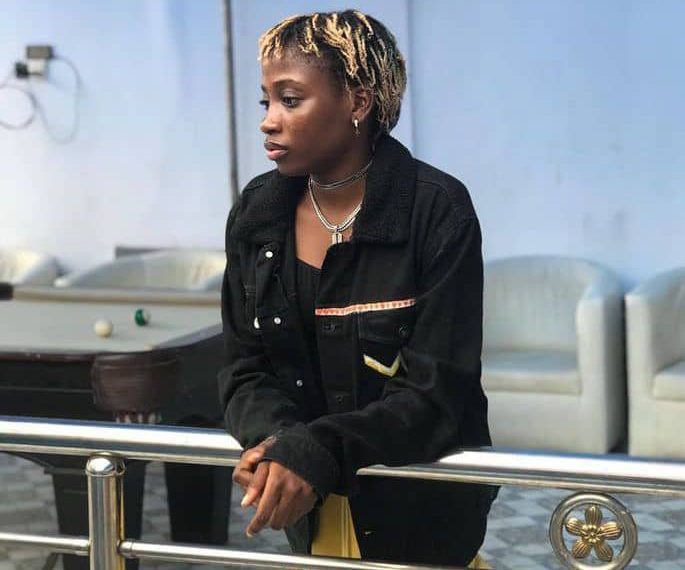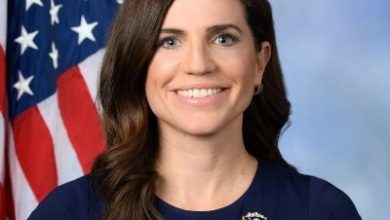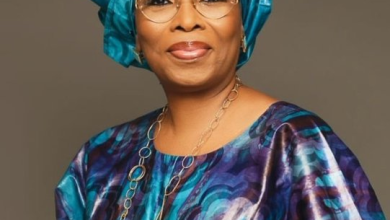“Our treatment should be on National Insurance Scheme”– Sickle Cell Warrior Sarah Uzorchukwu

|
Getting your Trinity Audio player ready...
|
The Sickle Cell Foundation Nigeria reports that Sickle Cell Disease (SCD) is the most common inherited blood disorder in the world, and three-quarters of cases occur in Africa. Sickle cell disorder is an inherited haemoglobin disorder comprising sickle cell anaemia (Hb SS) and some less prevalent but related conditions such as sickle haemoglobin C disorder (Hb SC) and sickle beta thalassaemia (Hb SBthal).
It is linked to severe blood shortages, intense pain, and serious complications like childhood strokes, chronic leg ulcers, hip joint degeneration, and multi-organ failure. Those affected often endure social stigma and emotional and psychological trauma and are at risk of premature death.
Sickle Cell disorder (SCD) affects nearly 100 million people in the world. Out of the 300,000 children born each year worldwide with Sickle Cell Disorder (SCD), over 70% are in Sub-Saharan Africa, with the vast majority in Nigeria. This makes Nigeria the country with the highest burden of SCD globally. By virtue of its population, Nigeria stands out as the most sickle cell-endemic country in the world; an estimated 150,000 babies are born every year in Nigeria with SCD, and sadly, 50 – 90% do not live to celebrate their 5th birthday, mostly due to ignorance and lack of access to appropriate diagnosis and care.
It is also estimated that over 25% of Nigerians have the sickle cell trait, implying that more than 40 million Nigerians are healthy carriers of the sickle cell gene (Hb AS) – about a quarter of the entire nation’s population – and can therefore transfer the gene to their offspring.
In Nigeria, the average life expectancy for individuals with sickle cell remains critically low, at under 20 years, compared to over 60 years in the United States. These alarming statistics are predicted to worsen if Sickle Cell Disorder is not addressed as the serious public health issue it truly is. It is crucial that SCD be recognised as a National Health Emergency that demands urgent and immediate action. Unfortunately, Sickle Cell Disorder remains a low priority for the government and key stakeholders, who must collaborate effectively to bring SCD under control.
Conversation with a Sickle Cell Warrior
Sarah Ozioma Uzorchukwu, a 25-year-old model and student at the University of Lagos, shares her stories of struggles and triumphs with BONews reporter Alabi Abimbola.
How has living with sickle cell disorder been?
Living with sickle cell anaemia is not easy because it is very expensive to care for. As a sickle cell patient, you have to take your medications appropriately, and they are not that cheap and affordable for all. You need to consume veggies and fruits regularly, which many parents cannot afford.
How many of your family members are affected?
Thankfully, I am the only one in my family who is affected. This gives me so much joy as I cannot bear to see any of my siblings going through the pain I go through.
Can you eat anything you like?
That depends on you and your doctor, but as for me, I do take almost anything I like. However, SCD patients are advised not to take foods that contain iron as they lose a lot of blood. People say that to regain it, you must take blood tonic, but we have been warned against taking blood tonic or any food with iron as it affects us.
So, how do you go about the issue of blood?
My mom usually goes the natural way, but right now, I have a tonic I’m using which doesn’t contain iron, and sometimes I get blood transfusion.
Do you feel any signs when you are about to have a crisis?
There are no signs for it. I can remember a time when I was little, and I wanted to strike a light on the stove. As I bent to strike the light, I wasn’t able to get up again, and I had an attack from there.
How has being a sickle cell patient affected you as a person?
It has made me an introvert with zero social life aside from my modelling. I hardly go out. I’m the eldest, but I look like the youngest (smiles). I like that, though… laughs. This made my siblings treat me like a baby.
How has this sickle cell affected your education?
I was schooling in the east. I wanted to go there ever since I was in secondary school, and though my parents didn’t want me to go far, I fought for it. Then I fell really sick and it was so bad that I had to be brought back to Lagos and had to stay at home for two years.
I also remember when I wanted to write my JUPEB main exams at the University of Lagos. I was really drowsy because of my drugs (prescribed drugs) to the extent of drawing emojis on my papers. I couldn’t write my second-semester exams in year two because I had an attack and was hospitalised for months. I had to defer this semester until the end of my programme as I cannot add it to my current class. It will add to my stress, which my doctor strongly advised against.
How supportive have your family been?
My siblings have been very supportive; in fact, they are the best! I have always been pampered by my siblings right from the start. They treat me like their baby (laughs). I only have a problem with my parents, as they can be overprotective sometimes.
Are your parents in support of your modelling career?
At first, they were not; they told me that if I went into modelling, I would neglect my education. They were always quick to say no to most of what I wanted, but now they have started changing.
What would you have loved your parents to do differently in managing your health issues?
I would say nothing because they have been supportive and caring. Before now, they would not allow me to get transfused based on their ‘religious’ belief, but they have changed their perspective on that now.
My last hospitalisation in March took a huge toll on them both physically and financially, and I was almost placed on oxygen, but God intervened.
Do you use a private hospital or a government-owned hospital?
I was using a private hospital before I gained admission into the University. When I got into school, they said they couldn’t accept letters from private hospitals, so I had to change to a government hospital.
Having experienced both private and government hospitals, which one do you prefer?
Apart from the stress of long waiting times, I prefer government-owned hospitals, as there’s always a person on the ground to handle any situation. They put a smile on your face there; they are just so amazing.
What would be your advice for the government or even individuals to live a better life?
Having a child with sickle cell is not a walk in the park at all. As individuals with a child with sickle cell, we must be caring and understand that we are wired differently and need special care. We cannot be exposed too much and must be well-fed with a balanced diet. I had a friend who had the same issue as I do, and he was not even catered for, his parents made him look like a liability, and he was left to fend for himself. He had to work to support himself at school. This is not good coming from parents who should love and nurture him. He didn’t beg to be born with sickle cell, but it is what it is.
The government is trying right now; our treatment is cheaper than others, and modern facilities are available. However, they can do better by allowing our treatment to be on the National Insurance Scheme to alleviate the financial burdens on our parents.
Do you have any other thoughts?
Yes. There are certain assumptions people have about sickle cell patients, people assume that once you are in your twenties, you should be over the sickle cell. It’s a condition one has to live with for the rest of the person’s life unless you do a bone marrow transplant.
Another assumption I heard is that the sickle cell will not leave you until you give birth. As someone who lives with sickle cell, you don’t need to stress, so I don’t get where that is coming from.
Editor’s note: MSc Student of Mass Communication (2023/2024) Alabi Abimbola produced this story following BONews Service, publisher Blessing Oladunjoye’s training on Disability reporting.






